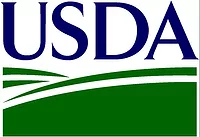How to maintain safe food facilities

Temperature-controlled food products are subject to stringent hygiene and work safety specifications. Proper equipment and cleaning are critical in order to comply with federal regulations and increased enforcement.
In addition to meeting these strict hygienic requirements and regulations, the food services industry must work to adopt solutions to maximize efficiency and minimize operating costs.
Here are four tips facility managers should consider to ensure they are up-to-date with federal food safety regulations outlined in the Food Safety Modernization Act (FSMA):
-
Learn (and follow) the rules. Under FSMA, the FDA is concentrating its efforts on preventing contamination, which differs from the seemingly more reactive role previously held by the agency. Facility managers must adjust their mindset and actions to support this shift. While FSMA does not directly address food equipment standards, companies should factor in the new regulations when determining which equipment will most effectively enable them to respond to the industry’s need for better product handling solutions.
- Inspect your facility. For an entire facility to adhere to code, all equipment must be compliant. Conveyors, for instance, are a crucial element of a food processing plant, as they are exposed to every unit of product that it transports throughout the facility. It is important to ensure the quality of the machinery and the treatment of the belts will not be prone to damage and recalls.
In order to prevent bacteria growth, systems should be designed with no entry point for water or other liquids. Implementing systems with an incline or round body prevent water from becoming stagnant. Both conveyor belts and drum motors must also be able to withstand frequent, wet and high-pressure washdown applications. Drum motors should be constructed with stainless steel that is chemical- and rust-proof, and feature an enclosed design that promotes hygiene.
- Provide training. Continuing education programs are crucial to the success of any business, and the food industry is no exception. Proper training ensures employees are aware of federal standards, reinforces proper operation and maintenance protocols and improves team members’ confidence and efficiency. Facility managers that provide regular training in installation, repair and cleaning and sanitation methods are not only safeguarding their businesses, but are also demonstrating their company’s commitment to public health.
- Ask the right questions. Ideally, food processing equipment should be certified by multiple authorities such as the USDA and the FDA to ensure hygiene and sanitation requirements are being met. However, because of the sheer size of the food industry, it can be difficult for auditors to monitor if every certification advertised by equipment manufacturers is accurate and up to date. Performing comprehensive research, as well as asking for proof of certification will eliminate surprises and recalls that may occur down the line.
Another common mistake made when purchasing equipment is to assume that a machine is hygienic solely because it is constructed with stainless steel or has an optimal ingress protection (IP) rating. Although these features are important, they do not guarantee that a piece of equipment is hygienic. Facility managers must be prepared to ask in-depth questions when purchasing new equipment and when assessing if equipment updates are necessary.
Questions to consider are as follows:
- Are all machine parts easy to access for inspection and cleaning?
- What IP rating do the individual parts carry?
- Are the machinery’s parts resistant to corrosion?
- Will high or low temperatures impact the machinery’s performance?
- Will potential heat output from the system affect the food quality?
- What is the repair process of the machine and are parts easily replaceable?
When assessing hygienic solutions and new parts to implement, it is also important to consider machinery that is smart, durable and assures scalability for future growth.
Intelligent conveyor systems powered by 24-volt drum motors help facility managers minimize logistic operating costs by increasing efficiency, limiting mechanical maintenance and reducing energy consumption in facilities.
Looking for quick answers on food safety topics?
Try Ask FSM, our new smart AI search tool.
Ask FSM →
In addition to operating expenses, from a food safety perspective, drum motors also offer significant advantages in terms of hygienic design and ability to easily clean the motors in place. These features not only reduce the risk of soil accumulation, cross contamination and corrosion, but also result in time and costs savings due to shorter and more efficient cleaning times.
While the major impacts of FSMA are still emerging, companies cannot afford to delay implementing safer food processing practices. Management teams must reassess their facilities and seek out hygienic food equipment designs if necessary. Taking responsible measures will eliminate risk and prevent an outbreak that could permanently cripple a business.
This article was originally posted on www.refrigeratedfrozenfood.com.







